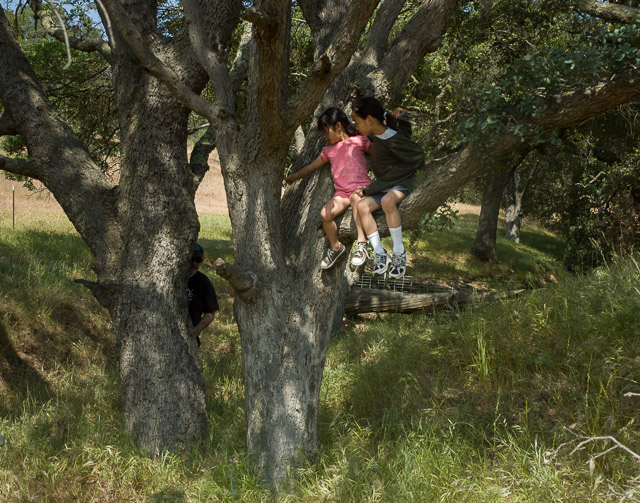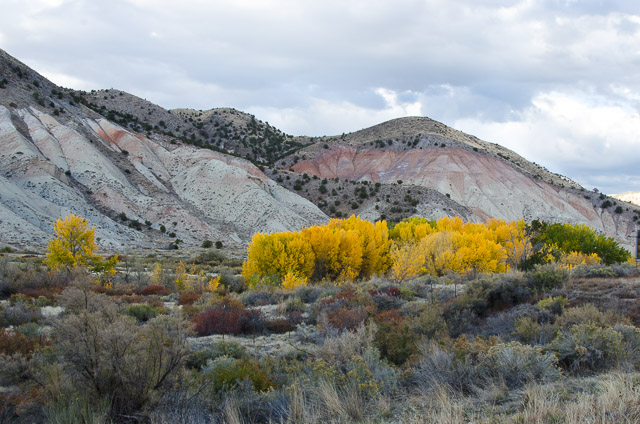My stepfather got his doctorate with a thesis on the purple pigment of the octopus. I never did find out what aspect of the pigment attracted him. He never followed up on his colorful mollusc; instead, he spent his life as a gypsy scientist. He gave emphysema to monkeys; he interviewed pilots in Vietnam; he designed gyroscopes; he worked on a public health project in Ethiopia.
In his spare time, he tinkered. At the suggestion of his mother, he designed a a coffee table on wheels with handles on each side. String was attached to the handles, so guests at a cocktail party could pull it toward them and thereby get cheese and crackers without getting up. In his later years, he designed and patented five devices for Scuba divers. Scuba was his passion well into his eighties.
Sound like a cool guy, doesn’t he? He wasn’t.
We lived half a block from Cal Tech, and before my mother remarried we took in students as boarders. They were very quiet, even shy, although when they would talk, the words came pouring out in a bubbling fountain of opinions, schemes and (almost inevitably) reasons why popular beliefs were wrong, wrong, wrong.
There are of course suave scientists, fashionable scientists, society scientists. But mostly not; mostly the lures of status and unearned admiration are treated as irrelevant to the process.
I found out that many scientists are quiet not because they have nothing to say; they just haven’t been socialized enough to understand how ordinary people modulate their opinions and their passions to suit the requirements of casual conversation. Rather than robotic data processing humanoids, they are in fact too passionate about the deep mysteries of nature. Everything is open to question, because science is about questions. It’s about refining the quality of the questions, and gathering information in often frighteningly intense ways, involving numbers in numbing array. Scientists are connected to the natural world in ways the rest of us can only imagine.

So there’s a subculture. Let’s call it a geek thing; it’s a imprecise term, but it’ll do. There’s geek habits (staying up all night in the lab); geek working conditions (muddy is good; muddy and cold is better); geek humor. I can’t describe geek humor, but I know it when I see it. There are, for instance, engineer jokes. This one is hoary, but enjoy it anyway:
Three condemned prisoners, a priest, a soldier and an engineer, were sentenced to the guillotine. Given the option to face away from the blade or toward it, each chose to face upward. The blade failed to fall for the priest, so he was released. It failed to fall for the solider, and he was released. The engineer lay face up for his turn. “I think I see your problem,” he said.
Heedless curiosity; that’s the mark of a true geek.
I had never read a book that described the scientists that I knew. Science books are often done by professional science writers, who (sometimes) explain the topic under examination with clarity and wit. But something is missing: the sense of what science is like. Scientists writing often describe their triumphs and failures (indeed, compassionate and impassioned books by surgeons is a whole sub-category), but usually the experiences are mediated by something, the urge not to bore or shock the reader, or the need to find a moral, a cheap nugget of uplift among the tales told.
All of which brings me to “Lab Girl”, a really excellent book by Hope Jahren, a geobiologist currently at the University of Hawaii. She’s something of a big deal in scientific circles (she’s won three Fulbrights) but not any kind of pop culture figure — no TV shows, no TED talks. But she sure can write about what science feels like, and what a scientist’s life looks like.

“Lab Girl” is surprisingly intense. Jahren is passionate about plants. “So humor me for a minute, and look out your window. What did you see?…Did you see something green? If you did, you saw one of few things left in the world that people cannot make. What you saw was invented more than four hundred million years ago near the equator. Perhaps you were lucky enough to see a tree. The mining of the atmosphere, the cell-laying, the wax-spackling, plumbing, and pigmentation took a few months at most, giving rise to nothing more or less perfect than a leaf.”
And she’s willing to look at that leaf for as long as it takes.
There are plant facts scattered about the prose. Trees have memory; did you know that? It’s a proven fact now, and Jahren was one of the people who helped prove it. But mostly it’s about the process, the loneliness, the overnight lab sessions, the excitement of finding stuff out. She describes her relationship with Bill, her lab partner for more than 20 years, a geek soulmate whose laconic sarcasm and unspoken dedication to the data, to the science, gives her nourishment. They choose to live like this, poor, living on coffee and pizza, running tests again and again, and going on road trips to muck through a swamp or dig unremarkable rocks out of the desert. The discomfort is part of the science; it’s proof that the passion is real.
Twenty years together, and never a whiff of romance, says Jahren. It was a strictly platonic love affair, or maybe a threesome — Hope, Bill, and science. The love is somewhere in there, and the love is relatively uncomplicated. Her tribute to Bill at the end of the book is heartfelt and complete.
Jahren’s personal story is complex. The way she chooses to present the facts is brilliant; I won’t spoil any of it. I hate reviews that just retell the entire story; I’m all for raw emotion and multiple surprises. “Lab Girl” is remarkable for its honesty.
Have you gotten the idea that I want you to read this book? I don’t know anyone associated with it. I got it because of a review, but by the time it arrived I had forgotten the review, and was uncertain why I ordered it. Three chapters in, I had a dawning appreciation of what was about to happen.

Scientists, like journalists, are under attack just now. Like journalists, they think the truth is important, that facts are all we have between us and chaos. But facts don’t seem to carry the weight the way they used to; “belief systems” are now all the rage, even if what people believe in their little systems is demonstrably untrue. Jahren is distressed and incensed by deforestation; each year, she says, we cut down one percent of the total forests on earth, a land area the size of France.
And what happens when the trees are all gone? We don’t exactly know, but it won’t be good.
But I’m editorializing. “Lab Girl” is not a polemic; it’s an autobiography, written by a woman with a unique ability to bridge the gap between scientists and the rest of us. And it’s poetic in the best possible sense; her prose is not purple but always, always, a dense dark green.

Thank you Jon & Tracy. Please don’t Stop. Hay
Sent from my iPhone
>
LikeLike
This is one of the best book reviews I have ever read. Many thanks Jon.
LikeLike
A doctor, a priest, and an engineer were out for their weekly game of golf. They found themselves behind a foursome that was playing VERY slowly. They held their tongues, though, until they got back to the clubhouse, where they complained to the resident professional. “Oh,” he said, “it’s not surprising they played slowly; after all, they are blind.”
“Oh dear!” said the priest. “Well, I will surely have to say a prayer for them!”
“I should go talk to them,” said the doctor. “I have dabbled in opthalmology, and there have been many recent advances in the science. Perhaps I can give them a referral that might help to address their problem!”
“What I want to know,” said the engineer, “is why can’t they play at night?”
LikeLiked by 2 people
yes yes yes!
LikeLiked by 1 person
Many thanks. I love scientists’ writing about science. It doesn’t signify whether it’s math (the genius S. Ramanujan), stress and genetics (genius Stanford prof. Robert Sapolsky), or anyone else. I will read this book.
LikeLike
Very interesting…thx…Kathy
Sent from my iPad
>
LikeLike
Thanks for this. On the way to the bookstore/
Robert
LikeLike
Thanks for the great book review and fab photos. I guess uncool scientists are the narrow but bright purple stripe in the woven fabric of our lives. (Once you notice it you can’t look away!) Hope Jahren sounds like an interesting and incredibly focused woman whose compelling project makes the rest of us look like grey slugs. Moving along slowly, I have put her book on my list.
LikeLiked by 1 person
I want to read that book. But Jon, if you had an editor, she would tell you to leave out the snarky remark about your stepfather, because you don’t follow up on it, and it is by no means necessary to the story you tell.
LikeLiked by 1 person
I wondered about the stepfather comment too. But maybe it’s that scientists are not “cool” people because of their methods and peculiar passions.
LikeLiked by 1 person
No, it’s just that we wasn’t a swell person. Sorry if it made you feel protective of him.
LikeLike
I’m pretty sure jon’s stepfather was either mean or worse.
LikeLike
That’s the difference between a piece edited for maximum mass acceptance, and something written by a human who is trying to tell you what’s in his head.
LikeLiked by 2 people
Thanks, I’ll definitely read the book.p
Sent from my iPad
>
LikeLike
I saw “The How and the Why” at Aurora Theatre last evening. A perfect pairing. Thanks, Jon.
LikeLike
This book has been on my list, thanks for the confirmation! Had the same reax about your stepfather remark, UXB (unexploded bomb)
LikeLike
The word ‘geek’ sucks and never ever have I thought of journalism and science as even in the same room.
LikeLike
The we disagree. So you think science and religion as in the same room? Science and government control of the press? Because when science decides that professions devoted to getting facts are somehow not qualified to be with Science, then science is screwed.
LikeLike
No, that’s not it at all. I started out in science, both in college and career… how you describe “science” is off the mark. Religion, politic or pop culture are not part of the equation unless connected to funding issues or the establishment at which science is being attempted – probably with distorted agendas and bogus purposes. Biased, pseudo science may be part of pop culture mythology but that doesn’t stand up in the glare of the legit scientific process … which is a series of questions based upon reasoning, testing (and re-testing), data collection, measurement, extrapolation and willfulness to the quest. The scientists I’ve known are, in real life, “common” people (BBQs, volleyball, some religious, some not, some liberal, some not, etc.) but when they go into the hunt for the unknown and eventual discovery; they’re rigorous, meticulous and passionate to a fault …. but they also know, today’s “Truth” will probably be superseded by tomorrow’s efforts and, I think, hopefully they want to part of the new discoveries, even if it’s through the next gen of students.
One caveat, I can understand placing politics into the scientific process… but it’s only there because of funding. There are too many questions not being addressed simply because the money source isn’t interested.
ps: I studied geology, marine geology & oceanography and worked at Scripps Institute of Oceanography.
LikeLike
Geek is an excellent , descriptive word
LikeLike
No, it is not an excellent word … basically it’s name calling. “Geek” originated w/ carnival performers who bit the heads off chickens or ate glass. Now days the inference is pejorative, stereotypical and often meant to single out or isolate one type of person from others.
LikeLike
(When there’s a thicket of aspens alone in the desert, “Access to water” is the best guess. Sometimes a thicket can show a geologist where a fault is.)
LikeLike
Yup. But it was an example of landscape phenomenon that ask for explication.
LikeLike
This was so wonderful to digest that I had to thank you – and to thank Tracy for the best tree portrait I’ve ever seen. Thanks to both for recognizing the universal beauty of disinterested scientific curiosit.
LikeLiked by 1 person
And she thanks you back.
LikeLike
Mille Grazie!
LikeLike
Jon, why wasn’t your step father scientist a cool guy? You never told us in the column but it certainly raised the question–especially since you think the Lab Girl is so cool. xxp
LikeLike
I wanted more information Was he mean? Or worse?
LikeLike
I don’t plan to tell that story; I just didn’t want him to seem like an admirable human.
LikeLiked by 1 person
Understood.
LikeLike
You have never, ever steered me wrong on a book recommendation.
LikeLike
Thanks, Jon — gotta read it! Reminds me of The Soul of a New Machine by Tracy Kidder. This is the book I tell people to read for an understanding of what electrical engineering work feels like.
LikeLiked by 1 person
Hey, I remember that book. He wrote a book about houses too, right? I could google of course, but it’s so much more interesting to invite speculation.
LikeLike
Why, yes; it’s called House.
LikeLike
Sounds like we should team up and send a copy to NYU’s Professor Claudio Basilico.
http://jezebel.com/lawsuit-nyu-professor-said-women-do-not-belong-in-scie-1777539564.
LikeLike
Thanks for the “Lab Girl” recommendation. I just finished reading it. Lovely writing that educates and entertains — a difficult prose accomplishment. Great stories. I especially enjoyed the travelogue from Georgia to San Francisco. Brave explication of her private thoughts and experiences. Best of all: the totally unexpected comic moments which had me laughing out loud. Attagirl! More, please!
LikeLike
Sounds like an excellent book. Leave it to Tracy to get such a wonderful photo of that Ficus tree and root system — I’ve been snapping pics of those things for months now, but none of mine capture the almost prehistoric essence in her photo.
Another good science writer — although not a scientist herself — is K.C. Cole, who use to write wonderful columns on a wide variety of scientific subjects for the LA Times. She has eight books out, I believe, and is very much worth reading.
https://en.wikipedia.org/wiki/K.C._Cole
LikeLike
Like you, I got started with a review (yours) and understood by page 30, that this was a very special book. If Stephen Hawking was this clear, I could finish his book.
I thus recommend two for you.
THE WAVE by Susan Casey. She alternates among scientists, extreme surfers, shippers — anyone who lives by the wave or dies by the wave. It has the same feel as Lab Girl.
SAPIENS by Yuval Noah Harari. He explains how our species came to be, how it came to control the world, and where things are headed. He has a wonderful sense of humor, and for each principle he espouses, he uses several disparate examples.
All three of these authors demonstrate that even complicated science can be clearly explained, and we can have a few laughs along the way.
LikeLiked by 1 person